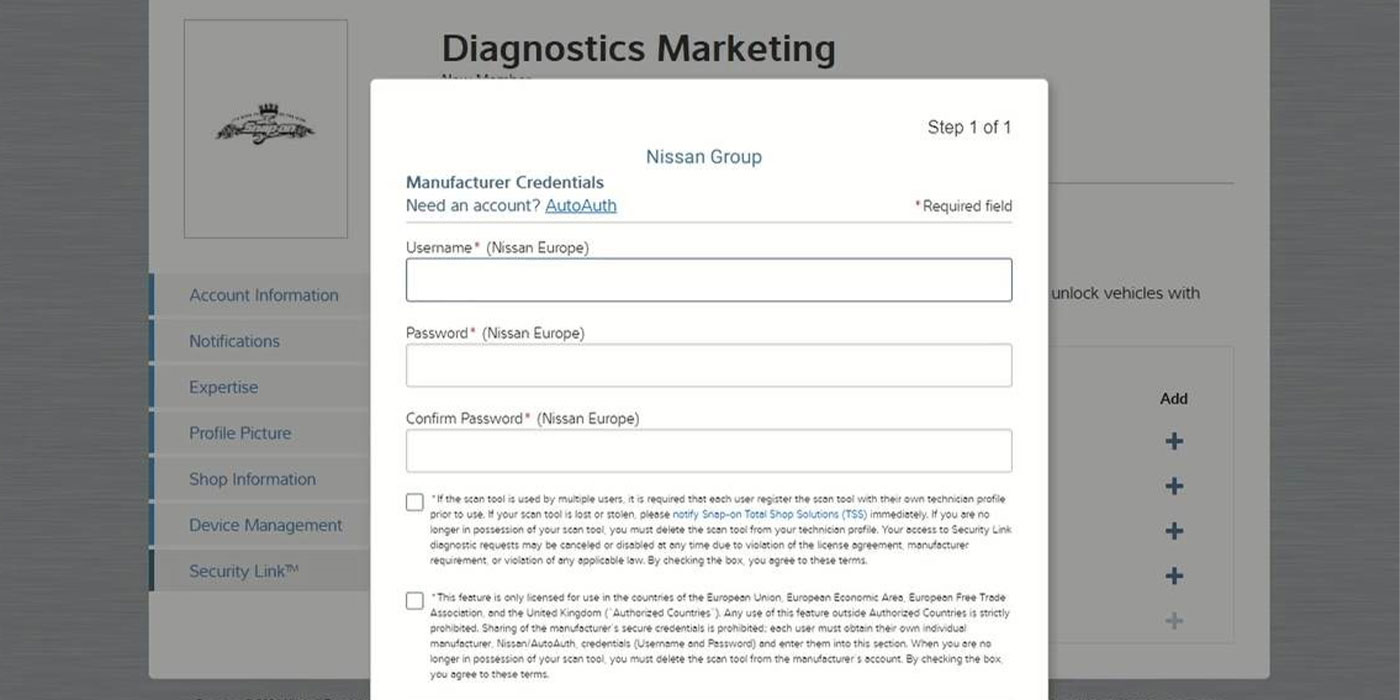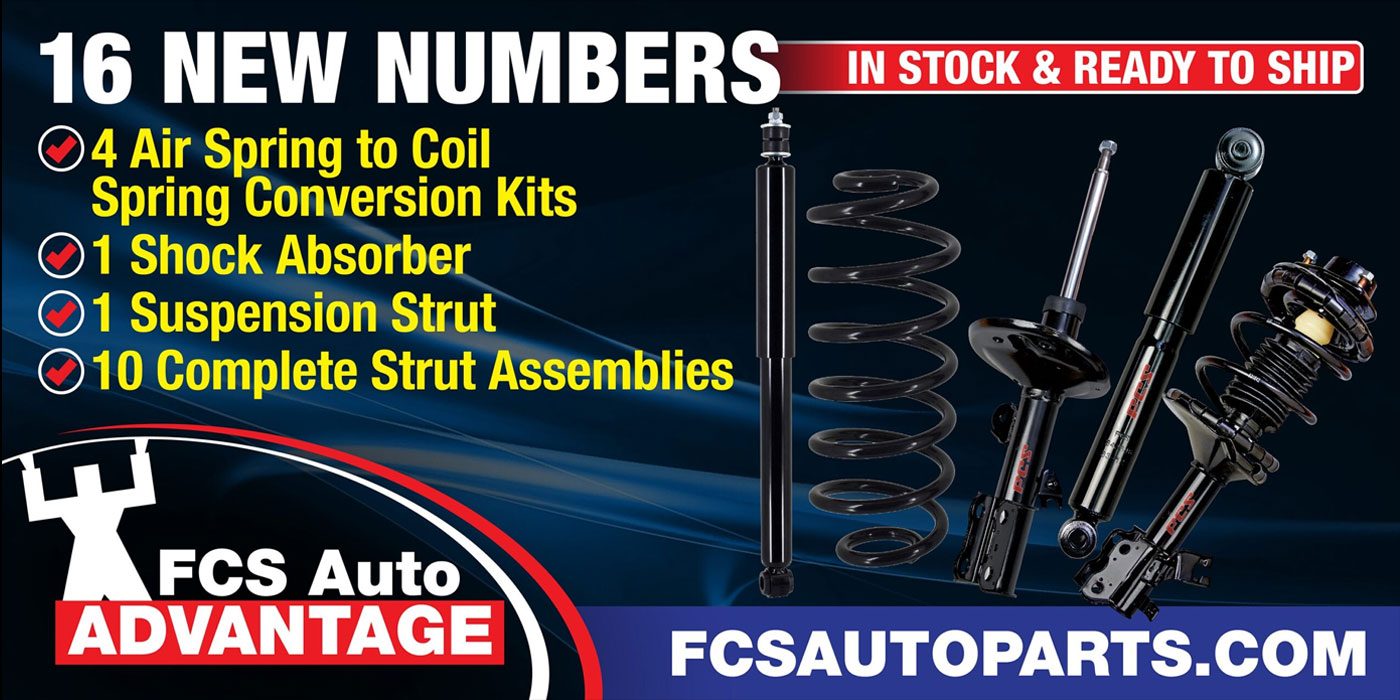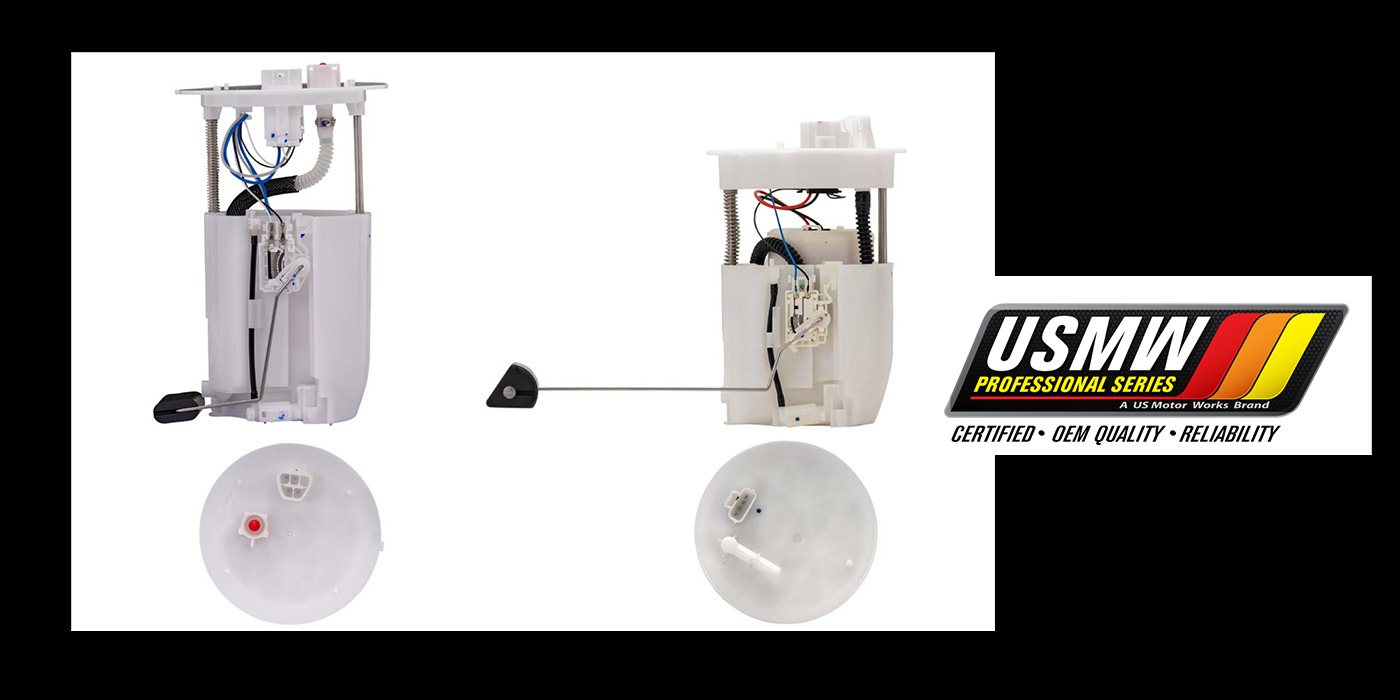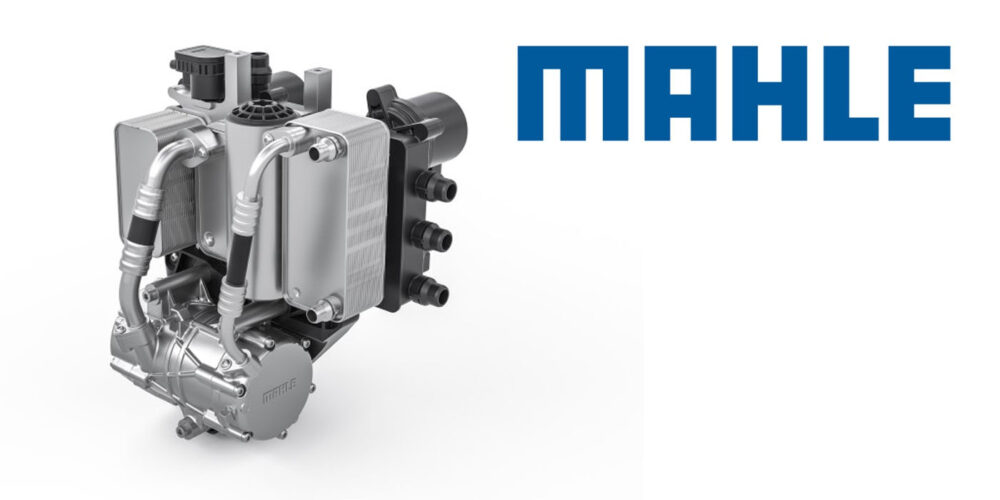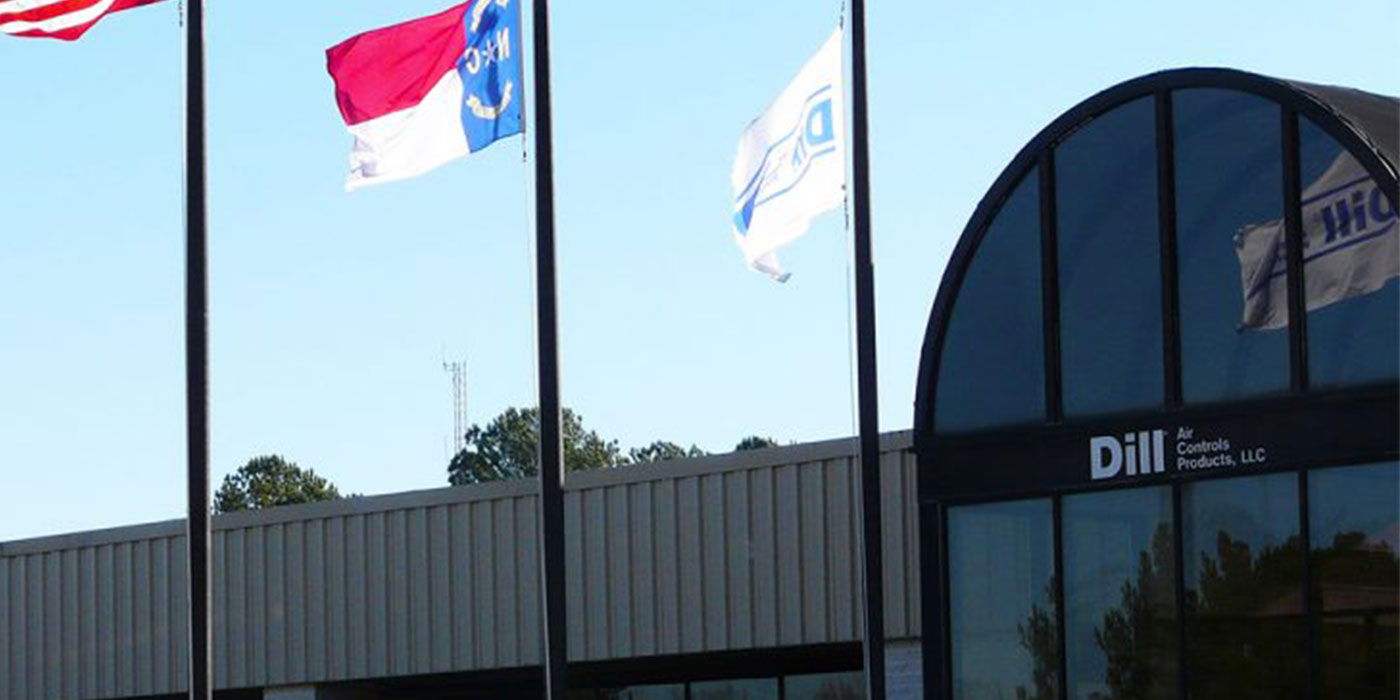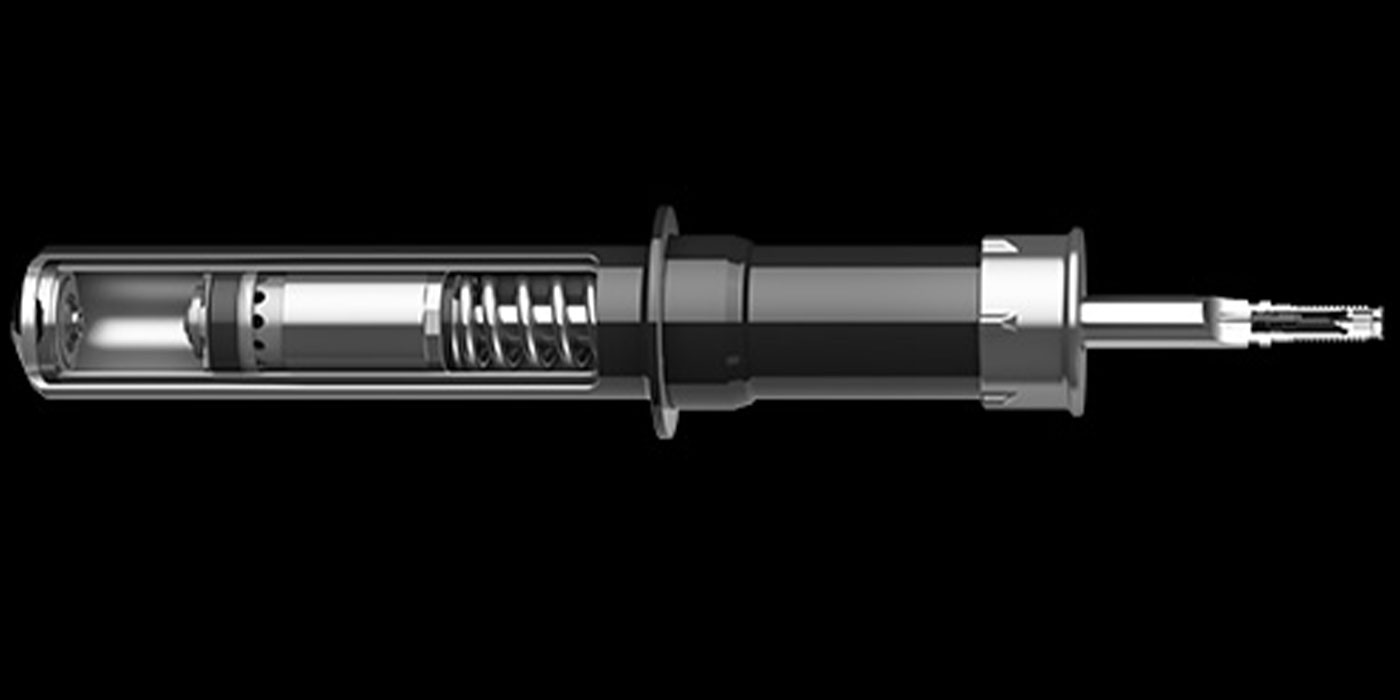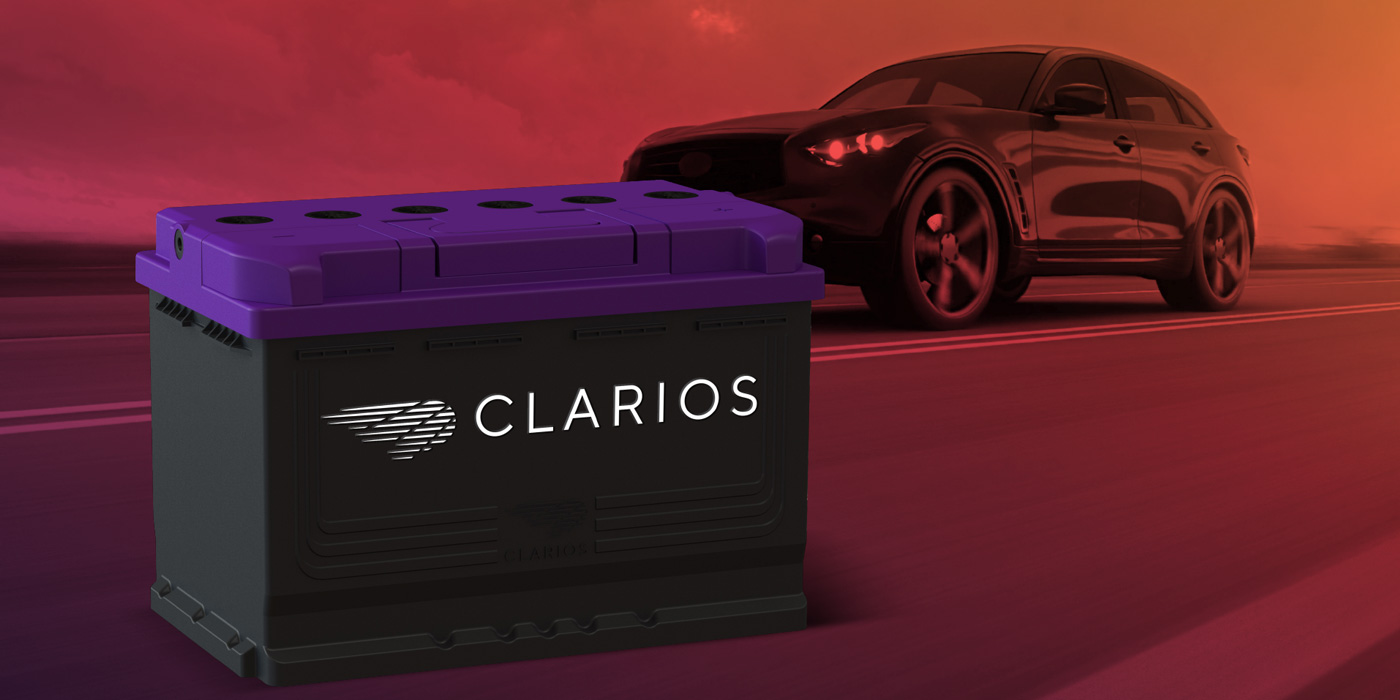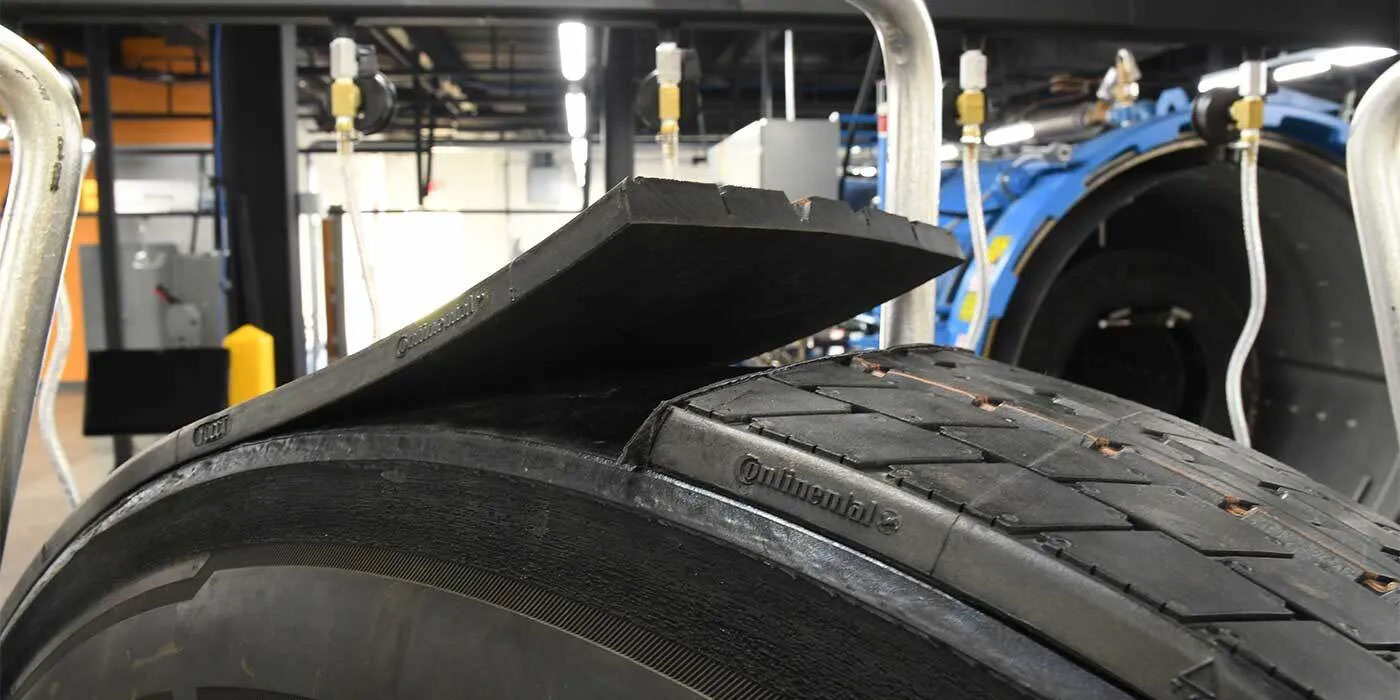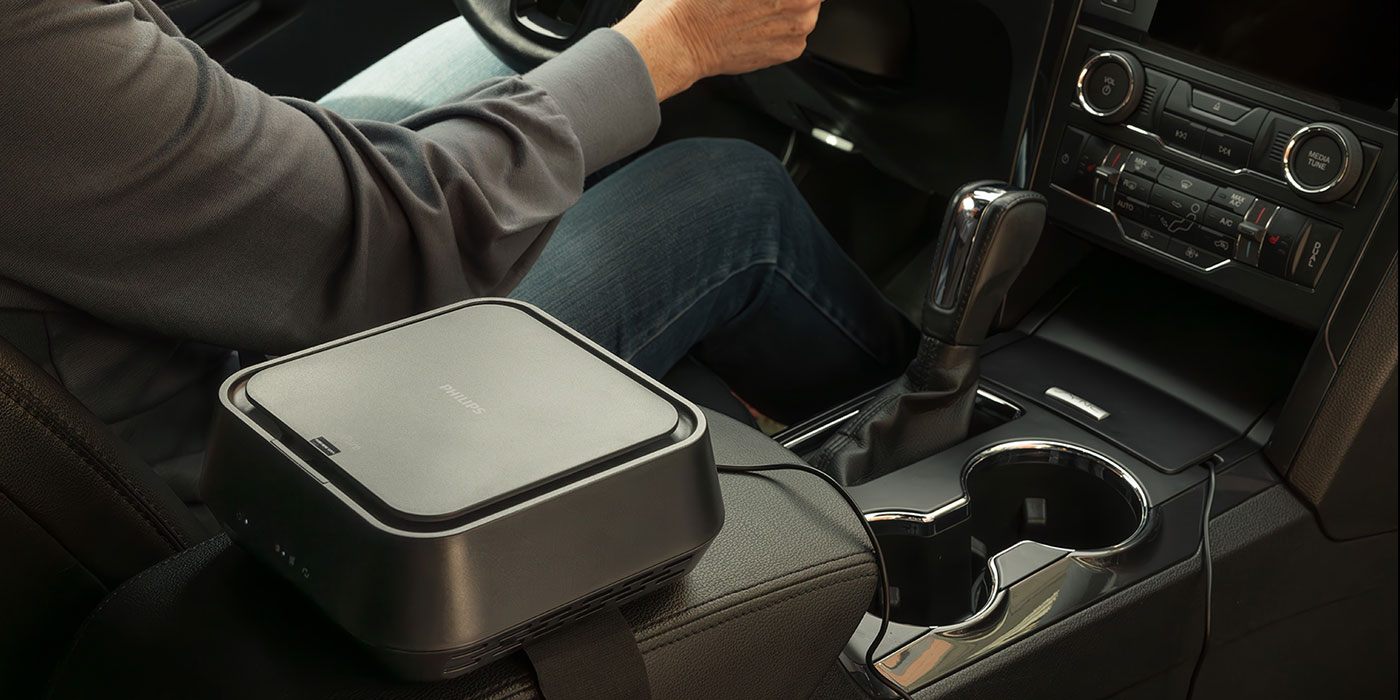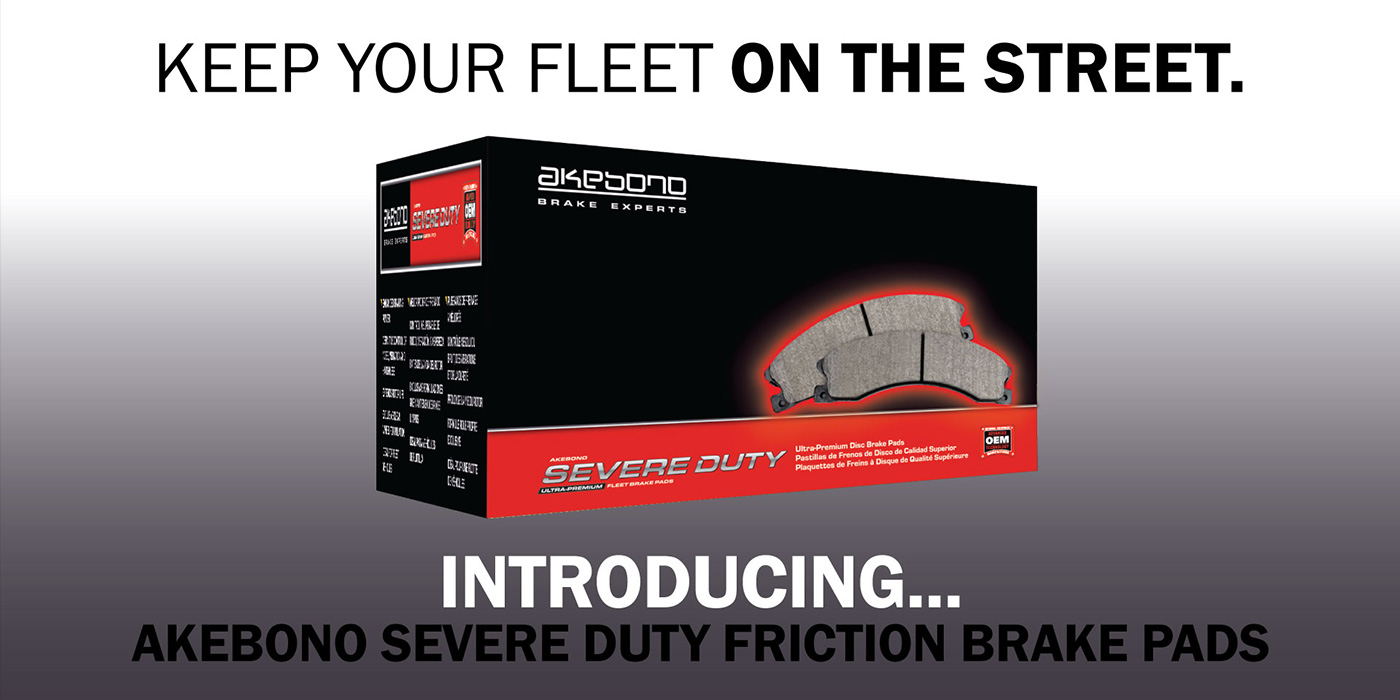aftermarketNews.com offers you an interview with a high profile individual in the automotive aftermarket. We give our executives free rein to express their views on anything from the state of their corporation to recent legislative news to future trends in their niche market. Here, you see what matters to the newsmakers themselves.
Two years ago on August 9, Bridgestone/Firestone Inc. — and the whole tire industry — changed for all time. On that day, BFS announced the voluntary recall of some 14.4 million Wilderness AT, ATX and ATX II tires (some 6.5 million were believed to still be in use) — the single largest tire recall in history. That single voluntary act set off a chain of events, including Congressional action, a major tire replacement program by Ford the following spring, an acrimonious split between Ford and BFS, and months of bad publicity. It also set the stage for a major revamp of tire safety and testing standards, reporting requirements and many other new regulations under the TREAD Act.
John Lampe has been in the middle of the entire saga from day one. More importantly, as chairman, president and CEO of what is now Bridgestone/Firestone Americas Holding (BFAH) and the head of Bridgestone/Firestone North America Tire, the Kansas native has led the once-beleaguered company back from the brink.
John, 55, joined the Firestone Tire & Rubber Co. in 1973 as an international trainee in the tiremaker’s Cincinnati operations. Since then, he has held a number of international assignments in Singapore, Denmark, Spain, Costa Rica and Brazil. John was president of the company’s former Dayton Tire Division in Oklahoma City, before becoming president of Bridgestone/Firestone Tire Sales Co., and executive vice president of Bridgestone/Firestone Inc. He was appointed CEO, president and chairman of Bridgestone/Firestone Inc. in October 2000, and was named to his current posts in December 2001.
In his third Executive Interview with aftermarketNews.com, John discusses BFAH’s remarkable rebound, how it was accomplished, what the company learned, and what the future holds.
What are some of the lessons you personally learned from the last two years, and what has BFAH learned?
Lampe: We learned a lot about the strength of our relationship with our dealers and the confidence we have in them. Our strategy of going to market primarily with our ‘family channel’ — our independent dealers and company stores — has proven to be the right strategy. It reinforced something we already knew, something that John Gamauf has talked about for years and that is that people buy from people and that relationships are important. And I think our relationships with our dealers proved to be absolutely the most important thing, along with our employees’ attitude, that pulled us through. We learned we’re on the right track.
Certainly we learned we have to be more engaged in Washington, D.C. When this whole thing started we didn’t have anybody in Washington representing us, even on a consulting basis. We had no one there, and we had not done a good job even getting to know our local senators and congressmen. Shortly after I took this job I called Bart Gordon, who has been the congressman representing the district covering our LaVergne plant for a number of years, and he said it was the first time he’d ever talked to a senior Bridgestone/Firestone official. So we certainly learned that we have to get more active, be more active and remain active in Washington. We now have a full-time associate who lives in Washington, and he’s done a tremendous job there. I travel to Washington quite a bit. We have certainly gotten to know our local representatives much, much better. We have gotten tremendous support from them and from the Governor of Tennessee. And we’re going to keep active. We also started a PAC this year. It’s our first attempt at having a Political Action Committee, and it’s been successful. We have had participation from all levels of our company.
The other thing I think we learned is that we had tons and tons of information and data but we had it in different places within our company and it was organized differently depending on what it was. We have invested a tremendous amount of time and money to develop what we call a Product Performance Information Warehouse. And absolutely everything that relates to the performance of our products comes into this one data warehouse and is then used by our quality assurance group to see if there are any trends or anything that they would consider a performance issue. What we say internally is that we want to solve issues before they become problems.
I can go on and on about all the things we have learned. I’ve learned an awful lot.
What do you think your competition learned from BFAH’s ordeal?
Lampe: I really can’t speak for the other companies, but I do think all of us have learned that we need to attack issues from within and resolve them. We need to have a good handle on the data. We cannot take things for granted. We can’t let other people control our destinies. Certainly I think the tire companies have learned that we need to do a better job for the American motoring public and in educating them about tire care. Tires won’t take care of themselves; they need attention. We’ve done a big campaign and some of the other tire companies and the RMA have done big campaigns. Those are the pretty obvious things. Did our competition learn anything? I don’t know what’s inside their heads. I think some of the things that came out of this would have been easy for them to learn: the importance of the independent dealer channel, the importance of relationships, the importance of mutual trust. If they haven’t learned that in the last two years, they probably just don’t want to learn and don’t want to admit it. Those are probably the most important things.
What are your impressions of NHTSA’s efforts on the TREAD Act mandates, especially the portions they have completed?
Lampe: I think NHTSA is trying very hard to implement the spirit of the TREAD Act. I do have confidence in Dr. Runge (NHTSA Administrator Dr. Jeffrey Runge). I think he’s trying very, very hard to do a good job. I think he’s very responsible to his mandate. He has taken the time to learn about tire manufacturing and the tire business. For instance, he’s toured our Aiken County, S.C., plant and some of our competitors’ plants. I found him very compassionate and passionate about safety. Transportation Secretary Norman Mineta wants to do what’s right. The TREAD Act is a very complex and difficult piece of legislation. It covers a lot of areas. I think they’re trying to do a good job.
I do have my personal opinion of the rulemaking on tire pressure monitoring systems. I don’t think that is a good piece rulemaking as it stands today. The tire industry has petitioned for reserve load requirements that will correct some of deficiencies of the current rule, and I hope NHTSA will look favorably on that petition. We hope we’ll get support from Capitol Hill on that, too. The testing standards are not in final form yet, and certainly we have some issues there that we will address with NHTSA. The reporting rulemaking is out and it is fine for the most part. But I do believe that NHTSA needs to be more aware of our concerns about confidentiality and why it is important. They are trying to do the job they were mandated to do. I think there are some things that they could do differently. If we can continue talking to them, and if they continue to listen to our input, which they have so far, we can make these things work right for the American public.
Have the automakers had the advantage thus far in how the TREAD Act provisions have played out?
Lampe: I can’t speak to that, but it is obvious that the automakers are a very powerful force in Washington. They have a lot of help and support and outside resources that they employ in Washington. They carry a big voice. But I think that once people understand our message and our sincere desire to do what’s right for safety and for the American public, I think they’ll listen and act accordingly.
Reports from Tokyo say Bridgestone Corp. will post positive results for 2002 and that BFAH will also likely be in the black. How strong will the turnaround be for BFAH? What kinds of results are being forecast?
Lampe: We committed to our employees, our parent company, our vendors and our customers that we would be profitable this year. And we will be profitable this year. We had a fantastic first six months, well ahead of our projections. Our unit sales are up on the consumer side. The Bridgestone brand is up 29% vs. last year, and the Firestone brand is at a much better level than we anticipated. Some of that is due to new products, but a lot of it has to do with our dealers. They stuck with us and they sell our products, and I can never give them enough credit. Sixty to seventy percent of the customers who walk in the door end up buying what’s recommended at the counter, and, thankfully, we have a lot of points of sale recommending our products. Bridgestone Corp. estimates it will make over half a billion this year, and I think they’ll make that projection. Our revenues will be up probably close to 5%-6% total. So our revenues will be up, we’ll be in the black, and our marketshare will be up. And that’s no bull.
What are some of the things you had to do to get to this point? You closed Decatur, you thinned out some lines, and you shifted emphasis to the Bridgestone brand and your associate brands. What are some of the other not so public things you’ve had to do?
Lampe: That was an awful lot you’ve listed, and I thought that was quite a lot to for us to do. Some of our strategies changed, too. Three years ago our mix in consumer products was 60% replacement and 40% in OE. We want to keep that ratio closer to a 70/30, which is where we are today. Some people have asked us if we’re out there trying to replace some of the business we lost with Ford, and our answer is that we will selectively add OE business whenever possible. But we like the ratio we’re at today, and we’re not going to grow that ratio anywhere back to where it was.
New products have been important. When people talk about the Firestone brand surviving, the one key was that we kept investing in new products. We launched the Affinity LH-30 and the Indy 500 tire on the Firestone side, and new Turanza and Dueler lines on the Bridgestone side.
You mentioned Decatur. That was just a terrible thing to have to go through, and it was one that I hope I never have to repeat again. But it wasn’t just Decatur. We had some staff reductions all across the company. We needed to get our ability to operate back in line with demand.
We didn’t close Decatur to punish anybody or because it wasn’t a good plant or because there weren’t good people there. We had to get our capacity back in line with the realities of what tire demand was. We were able to close Decatur, shift production to other plants and now we’re running at 100% capacity at all our plants, except Oklahoma City. In order to increase the capacity there we’d need to add people. Right now we don’t want to be aggressive about doing that.
What has been the hardest, worst part of the last two years, and conversely what have been the best parts?
Lampe: Closing Decatur was tough. The layoffs we had to take in the early part of 2001 were hard, too. I can handle going to Washington and I can handle getting beat up in the media; some of those things have been difficult, too. I can wake up the next day after things like that and handle it. But Decatur has been lasting. People who worked for us for years were put out of work and can’t find the type of job they had with us, and I don’t feel good about that. Now, I think we made the right decision, and if I had it to do all over again I’d make the same decision, but I wouldn’t feel good about it at all.
The hardship this all has brought on our people has been tough. Some of the things our associates have gone through — they have been so loyal and dedicated. I get e-mails all the time from people throughout our company, people I don’t know and haven’t had a chance to meet who work at our overseas locations, or at Wilson or Des Moines or other places. You can’t understand how people could be as loyal and dedicated as these people have been. I’ve hated the hardships they’ve had to go through.
But I guess one of the positive things has also been that dedication and loyalty. We’ve seen it from our employees, business partners, our dealers, our other OE customers and our parent corporation. Our parent corporation put $1.3 billion into this company at the beginning of this year, into a company that a lot of people were saying might not be around. But they had confidence in us. They’ve been there every time we’ve needed them. They’ve helped us tremendously, and they have confidence in what we are doing. And I can never talk enough about our dealers, and all the phone calls I’ve gotten and the conversations I’ve had with our dealers.
Invariably, when I try to list all the things and the people who have been important to us, I leave somebody out. I would be remiss if I don’t talk about the racing community. Racing is very important to us, and to see the support we’ve gotten across the board. Mario Andretti coming to us asking what he and Michael could do to help, and Mario traveling all over the country talking to our dealers. Tony George making the decision to take the Firehawk racing tire as the exclusive tire for the Indy Racing League and the Indy 500, and then letting us put the Indy 500 name and logo on our new Firehawk Indy 500 tire.
Has this industry succeeded in educating consumers? Where has it failed, and how much more needs to be done?
Lampe: We’ve done a lot, but I think a lot more needs to be done. I don’t know that we’ve failed. I don’t know if you can ever do too much from an educational standpoint. We just have to get the message out there that tires must be maintained, that the only thing between the vehicle and the road is a six-inch patch of rubber, and if it’s not maintained it cannot perform up to its potential. We’ve done a lot, we’re doing a lot, we’ll continue to do a lot. But there’s a lot more to do. We all have to do a better job.
And that’s one of the things that worries me about NHTSA’s tire pressure monitoring system rule. We already have a tough job convincing consumers to check their tires once a month. Then this rule comes out that says, ‘OK, you’re going to have this low pressure warning device on your car and it’s going to tell you when your tires are underinflated — but not until your tires are 30% underinflated.’ Well, if the consumer wouldn’t check his tires before, with this pressure monitoring system we’re afraid they’re going to check their tires even less. And with the trigger being as low as 30% underinflated, we’re very concerned about safety. We need to get that strengthened. Does the oil light come on when you have no oil? No, the oil light comes on when you’re a quart low. It needs to be that way with tires.
Why did BFAH quit pushing NHTSA for a more thorough investigation of the Explorer?
Lampe: We did what we thought we needed to do. We did what our conscience told us we needed to do. NHTSA has made its decision. We needed to get on with our lives and do what we know how to do best.
What is BFAH’s current relationship with Ford? What kind of communications have you had with Ford? Were you surprised by Bill Ford’s TV commercial that specifically mentioned Harvey Firestone’s relationship with his grandfather?
Lampe: We have daily contact with Ford at the account level. Our other departments communicate with Ford when it’s necessary. I’ve been up there a couple of times. I don’t think I can classify our relationship as totally mended or like it was three years ago. It’s obvious that I can’t say that. We are talking. We are looking at mutual opportunities. We’re keeping each other informed of things that would impact both companies. So the relationship is as good as I could expect it to be at this time. Would I like to see it progress? Yes, I would. That was one of the other difficult things. Closing Decatur certainly had to be the most difficult thing I faced, but deciding to cease doing business with somebody we’ve did business with for a hundred years was also very painful.
I thought Bill Ford’s ads were very classy. He didn’t have to do that commercial that way. He could’ve done that same commercial and talked about his great-grandfather and Thomas Edison and the first SUV and never mentioned Harvey Firestone’s name and probably 95% of the people wouldn’t ever have realized it. But it was an important part of history, it was an important relationship between those two men. I think he told the right story and I admire him for it.
From a unit sales standpoint, how has the Firestone brand rebounded over the last two years?
Lampe: Firestone, on the consumer side, was impacted significantly. We really never saw any impact to our other Firestone brand business, for instance, in agricultural tires, OTR tires or truck tires. The real impact was the consumer business. Like I said, we’re much further along with our Firestone sales than we thought we would be at this point in time. It’s very encouraging. The people out there who said the Firestone brand couldn’t survive didn’t know us, didn’t know the history of the brand, didn’t know the loyalty of our dealers, and didn’t know the dedication of our employees. The Firestone brand is going to survive, and it will continue to be one of our two major brands.
Do you think BFAH took too big a hit in the fall-out from the recall?
Lampe: Yeah, I do. Sure I do. I think there was a lot of media hysteria. I think there were a lot of things said without a lot of substantiation to them. I think the thing that gets forgotten is that we felt there was an issue — we didn’t know exactly what the issue was, what the extent of it was, or whether it was the tire or something else — and we decided to recall an overly inclusive population of tires in the interest of public safety. You would have thought that we did the worst thing in the world. And for the first time in the history of the tire industry, I believe, a tiremaker said, ‘We need to get this done, we need to get these tires off the road, so let’s open this up to everybody and let competitor tires on.’ Did anyone say that was a good thing to do? No, you never heard any of that. So, am I disappointed, do I think we took a lot of unfair and unduly harsh criticism? Yes I do. I feel that from our employees and from our customers. But you play the hand you’re dealt and do the best you can.
From an overall perspective — not just from BFAH’s viewpoint — what other reforms need to come out of all of this?
Lampe: One of my biggest pet peeves is tort reform. It’s not just with BFAH and it’s not just with the tire industry, but if we don’t get it reined in it’s going to drive manufacturing out of America. People who are hurt deserve just compensation. But compensation is not going to the people who are hurt. It’s going to the trial lawyers, the trial lawyers and the trial lawyers. When you have a verdict, as one of our competitors did, where the tire had three repairs, improperly made repairs, and the verdict in favor of the plaintiffs was for $39 million, that’s just ridiculous. What’s a jury going to do? We don’t know. It’s a crapshoot anymore. Legal reform, in my opinion, for the sake of our whole economy, has to be something that we address very seriously.
How important have your dealers been to the recovery process? Were you surprised by their reaction?
Lampe: You know, I guess I wouldn’t be telling the whole truth if I didn’t say I was a little bit surprised. I knew we had great relationships with our dealers, and many of them are personal friends of mine. Out of our top 100 dealers, I probably know 95 of them personally. But tire dealers are multi-brand dealers; most of our dealers handle another brand. It would’ve been very easy for them to put us aside and start emphasizing one of the other brands they have, and not have the hassle of dealing with people being upset with us. So, to say I wasn’t somewhat surprised, I guess I could never have imagined the amount of loyalty and dedication of our dealers.
And it goes across the board. I can’t name one of our dealers who I thought turned his back on us or gave up on us. Not one. I can’t pretend that I know every location, but I can’t think of a single dealer that I’m disappointed in.
In our TireStarz program, since Aug. 9, 2000, we’ve enrolled over 350 additional TireStarz locations. These were people who weren’t doing business with us before the recall, but decided to do this over the last two years despite our challenges. I think our dealers know that we truly do care about their profitability and that we know that if they aren’t successful we won’t be successful. I can never thank them enough, and I can never give them enough credit for staying with us.
Has the dealer community recognized that there was a technical problem with the tires?
Lampe: No. You talk to our dealers and they will tell you — every last one of them — that they never, ever saw a problem. You talk to some of our dealers who have sold literally tens of thousands of Wilderness and ATX tires that they will tell you they never saw one tread separation come back to their businesses.
Can this happen again to BFAH or another tire company? What kind of impact do you think there would be?
Lampe: I don’t believe that it can happen again. We’ve certainly learned a lot of things. We have our early warning system in place. There will be recalls in the future. Some of our competitors are doing it right now with small populations of tires. That will happen because tires are still made by people. But will it happen again to the proportion or the extent of what we went through? I don’t think it will happen again. Not in our company.
What’s next for John Lampe and BFAH?
Lampe: Well, I’m going on a trip with dealers, and to have a little fun, as well. For BFAH, we’re going to achieve what we set out to achieve this year. We’re going to be profitable. We’re going to increase our marketshare. We’re going to revitalize the Firestone brand; I promise you that. We’re going to continue our motorsports program, which has been so successful. And, hopefully, in the not too distant future, we’re going to be in a position where we need to expand capacity.
_______________________________________
Click here to view the rest of today’s headlines.

